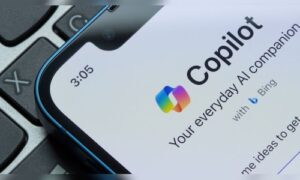Shaping the Future: How Microsoft Copilot and Azure AI Support Babson College’s AI-Driven Path

Babson College’s Pioneering Journey with AI Integration
Babson College, a prestigious private business institution located in Wellesley, Massachusetts, continues to set high standards in education. In 2024, The Wall Street Journal ranked it as the second-best school in the United States, while U.S. News & World Report recognized it as the top school for undergraduate entrepreneurship for 27 consecutive years.
Modernizing Technology Infrastructure
When Patricia Patria stepped into the role of Chief Information Officer (CIO) two years ago, she noted the pressing need to update Babson’s aging technology systems. Missing crucial features like cloud services and data analytics, the institution faced challenges in delivering the level of support expected by today’s educators and students.
In her first year, Patria implemented a three-year strategic plan aimed at adopting cloud-first solutions from Microsoft. This initiative helped streamline processes across various departments, transitioning faculty, staff, students, and alumni to the Microsoft 365 platform. The overhaul simplified workflows and increased overall efficiency.
Integrating Artificial Intelligence in Education
By August 2023, Babson laid the groundwork for incorporating artificial intelligence, rolling out Microsoft Copilot and Azure OpenAI Service early in 2024. This development allowed the entire college community to utilize these AI tools both in and out of academic settings. Babson fully embraced AI by integrating it into the curriculum, enhancing the learning experience, and improving operational capabilities.
Benefits of AI for Faculty and Administration
Babson’s commitment to innovation significantly boosted operational efficiency. Routine tasks were expedited, freeing faculty and staff to focus on more strategic initiatives. The introduction of robust governance policies also ensured security and compliance, including one of the earliest AI ethics policies in higher education.
Patria explains the value of Babson’s entrepreneurial spirit: “Because it’s so entrepreneurial, we’re not afraid to try new things.” This mindset led to a pilot program that incorporated Azure OpenAI into a range of classes.
Collaborating to Create Tailored Solutions
Working together with Microsoft and other partners, Babson developed customized AI solutions to meet student needs. For instance, predictive models were built to identify students facing challenges related to tuition payments, well-being, or academic performance. By detecting issues early on, the college can offer timely support before they grow into larger problems. Additionally, tools like Babson’s Mathbot were created to aid students in STEM courses that demand solid math skills.
Patria stressed the importance of collaborating with strategic partners to ensure effective solutions are developed: “Our goal is to help our students in areas where they need it and to provide a better student experience around experiential learning.”
Navigating Student Adoption of AI
As AI technologies rapidly evolve, managing varying levels of student competence becomes a challenge. Professor Jonathan Sims highlighted the necessity for adapting teaching methods to align with the fast-paced integration of AI. He noted that Babson’s partnership with Microsoft has provided a secure framework for using AI responsibly.
Junior student Spencer Karns emphasizes the enhancement in work efficiency brought about by AI. He stated that partnerships with tech companies make AI more accessible, leading to better problem-solving capabilities for students.
Practical Applications of AI in Classrooms
Through Azure AI Studio, students can create their AI-powered tools using well-known AI models like GPT and DALL-E. With significant funding allocated for AI grants, Babson encourages students to develop their own AI products, fostering an environment rich in innovation.
Events like hackathons further contribute to this hands-on learning approach, allowing students to explore Azure AI applications in real-world scenarios. These experiences help students build skills that will be crucial in their future careers.
Fostering Faculty Engagement with AI
To support the increasing demand for AI knowledge, Babson launched The Generator—a grassroots initiative that helps faculty explore and confidently implement AI in their teaching. This platform enables educators to share insights and best practices while evaluating various AI tools.
Gilleran, a faculty member involved in The Generator, underscored how Copilot helps shift the focus from tactical teaching to strategic engagement, allowing educators to add more value to their courses.
Future Outlook for AI at Babson
Babson College is committed to further harnessing Microsoft’s AI tools to enhance both learning experiences and operational efficiencies. Integrating products like Copilot Studio and continuing AI-related initiatives reflect Babson’s goal to cultivate an entrepreneurial mindset in students while preparing them for ever-evolving job markets.
By adopting AI solutions, Babson has fostered an innovative culture that equips students with the skills necessary to thrive in the competitive business landscape. Professor Sims encapsulated this vision, stating the importance of demonstrating how AI can empower students to enter markets they previously couldn’t reach, ultimately changing the game for future entrepreneurs.






